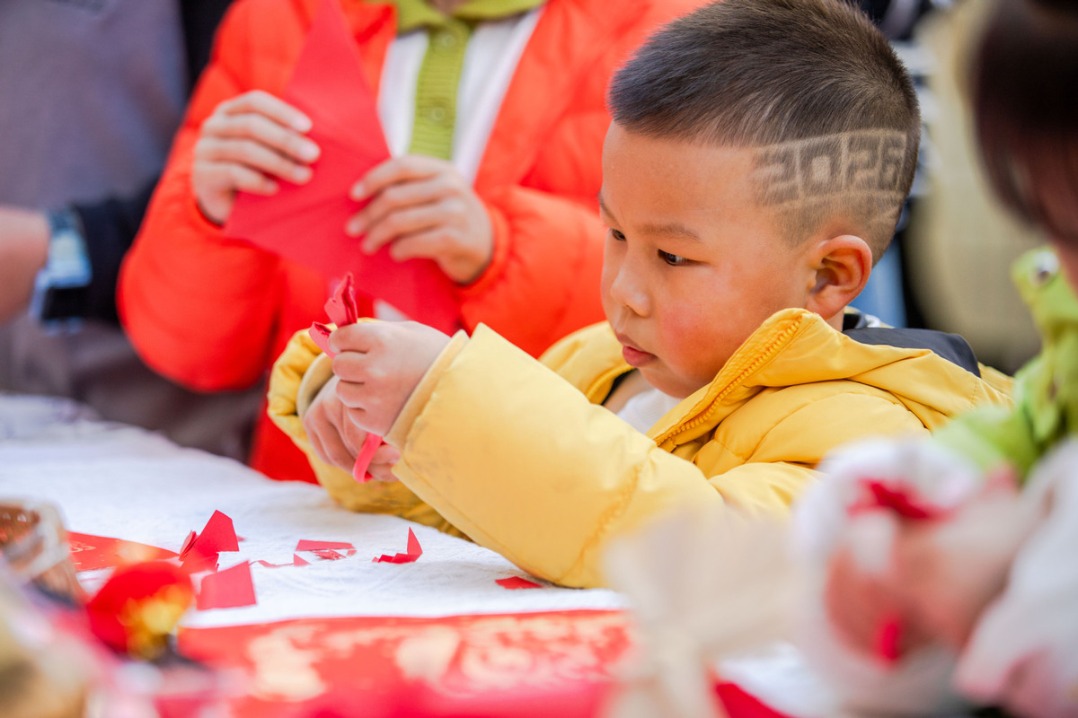Team effort brings copycat author to justice


While Shen hesitated over pursuing litigation, Qing Ya, the volunteer, was thinking about how to effectively prevent Zhou from resorting to plagiarism.
"Many volunteers, including myself, wanted Zhou and Xiao Xiang Academy to apologize for their plagiarism when we discovered it in 2013, but to our disappointment, they refused to do so and also denied it," Qing Ya said.
Another volunteer, Zai Qing, said she was very angry to see online works she likes being plagiarized, so she compared content in Zhou's book similar to that in other original online novels to push for an apology from Zhou.
But Zhou said in a statement that Zai Qing's intention was to remove her from the world of online literature, and some of the evidence Zai Qing cited was incorrect.
Qing Ya began contacting original authors, including Shen, online. But initially few authors of online novels replied to her due to difficulties involved in copyright protection.
Another factor that annoyed her was that she didn't know how to seek a lawyer. "I had never met lawyers, let alone knew where to find them," she said.
"In addition, I felt so frustrated when hearing Zhou's book was to be adapted into a TV series around 2015," she added, comparing it to a mountain blocking her path.
At the end of 2015, Qing Ya contacted Wang Hailin, a well-known playwright, who has called for action to tackle plagiarism.
To her surprise, Wang Hailin quickly responded, saying he would provide financial support for her. Thanks also to Wang Hailin, in August 2016, Qing Ya met Wang Guohua, a lawyer at the Beijing Zhongwen Law Firm who specializes in handling IP disputes.
Wang Guohua told Qing Ya he could offer the volunteers legal services at the lowest rate and he called for more attorneys to join the IP protection campaign.
The help from the playwright and lawyer gave Qing Ya and online authors hope. More writers whose works had been plagiarized by Zhou took action to safeguard their copyright.
At the final count, 41 volunteers, nine lawyers, 12 authors and some screenwriters joined the team, filing 12 copyright lawsuits against Zhou at Chaoyang District People's Court in January 2017.
In April that year, the case between Zhou and Shen, the first in the series of lawsuits, was heard at the court.
A major task for the volunteers - most of whom were college and high school students - was to compare original novels with Zhou's book and then mark the same or similar parts in different colors, according to Wang, the lawyer.
"I was moved by the efficiency of the volunteers," he said. "I required a comparison in three or four days, but they often finished it and sent it to me in two days or less."
In the end, the stack of paper evidence that resulted was more than 2 meters high, he added.
A volunteer calling herself Xie Qiao joined the team in late 2016 and was responsible for proofreading the evidence before submitting it to the lawyers.
Although a literature lover herself, she had never bothered to read The Poisonous Daughter due to its length, but when given the job of collecting evidence, she read both the online version and the paperback. She still remembers reading one chapter more than 10 times.
It took her a month to finish the proofreading, during which time she stayed up to the early hours to go through the words.
"I don't have a literary background, so I like to read books very quickly, taking in 10 lines at a glance," she said. "But proofreading required me to go through it word by word and line by line, which was quite torturous."
Zai Qing said one of the most difficult parts of the process was that volunteers had to read several different versions of the book because Zhou had made modifications to it.
"We not only compared the genuine web version, but also the plagiarized version, as well as the published paperback version from the beginning to the end, so it took a long time," she said.
In addition, volunteers reread the suspected passages of text in case they had missed anything.
Although the volunteers and lawyers said nearly 100,000 words in Shen's book were plagiarized by Zhou, the court said the figure was less than 30,000.
The team said it understood and respected the court's ruling, adding that the attempts to prove Zhou's plagiarism had got off to a good start.
Acting as a coordinator between the volunteers and lawyers, Qing Ya said she was excited when she saw her goal being realized, even though it took six years.
China Daily contacted Zhou, but by press time had not received a response.
Li Zizhu, the judge responsible for the case between Zhou and Shen, said the court would speed up hearings of the other 11 disputes against Zhou to fully protect authors' legitimate rights.
He confirmed that online copyright infringement had become more frequent in recent years, "as online works are easier to copy and to tamper with than traditional paperbacks".
"We will not hesitate when it comes to IP protection, no matter whether it is an online work or a paperback," he added.
Feng Xiaoqing, an IP professor at China University of Political Science and Law, said he is keeping an eye on a draft amendment to the Copyright Law that is being considered by legislators, suggesting they raise the amount of compensation for victims of plagiarism to further safeguard their rights.
In view of the difficulties faced in combating plagiarism in cyberspace, he added that IP protection should be pursued seriously, rather than being a mere concept.
Wang, the lawyer, said the lawsuits against Zhou are a good example of IP protection, "as they join efforts made from all walks of life and motivate more people to safeguard original works."
- Theme poster on military drills 'Justice Hammer, Blockade and Disruption'
- President Xi to deliver New Year's message to ring in 2026
- Various activities held across China to celebrate upcoming new year
- Postal and delivery services now cover all rural areas in Xizang
- Top judiciary fortifies public interest litigation
- AI contest forges new biz tie-ups





































